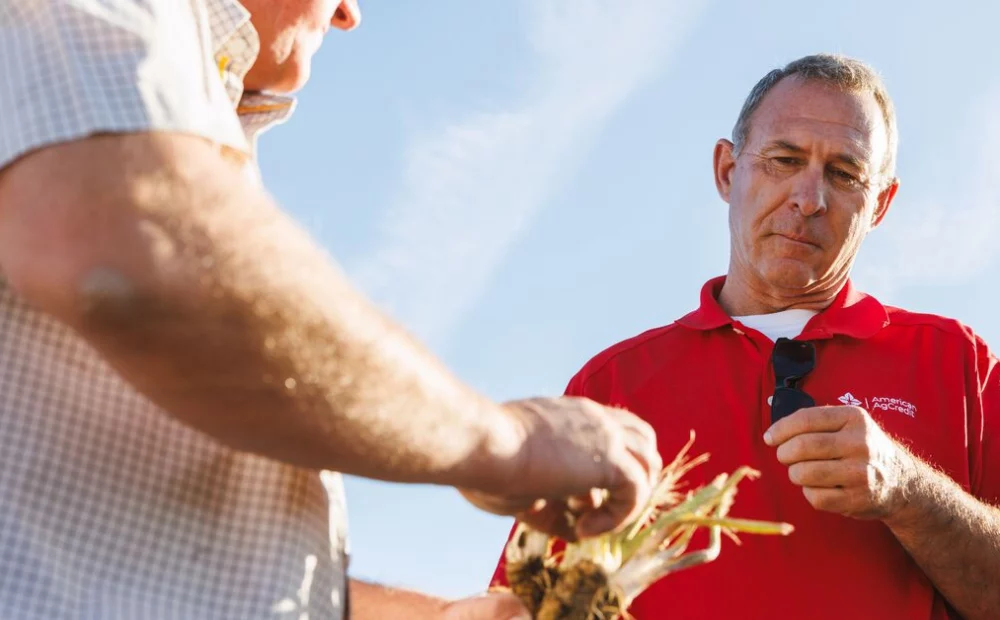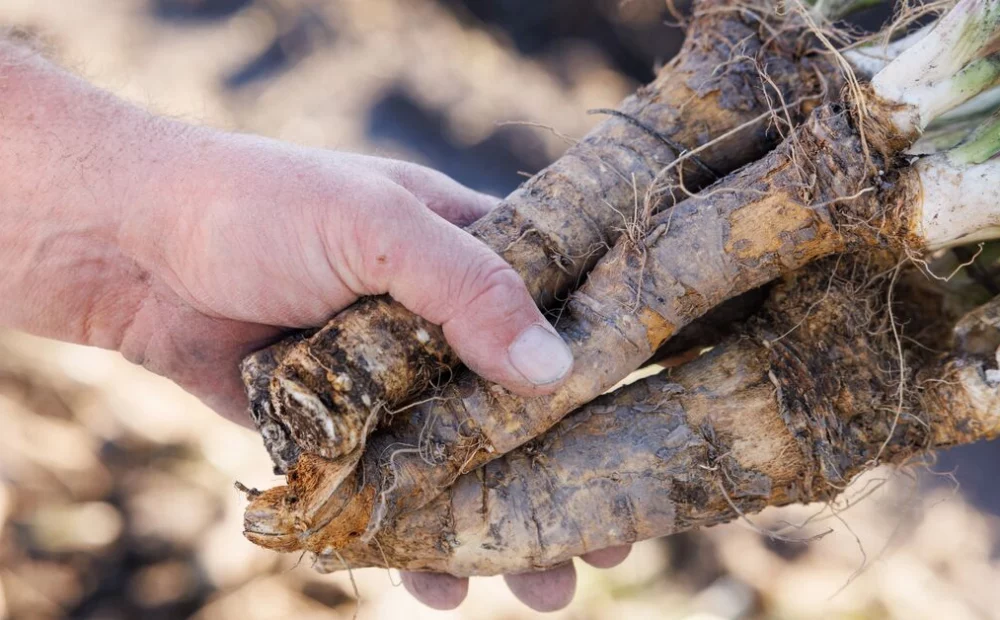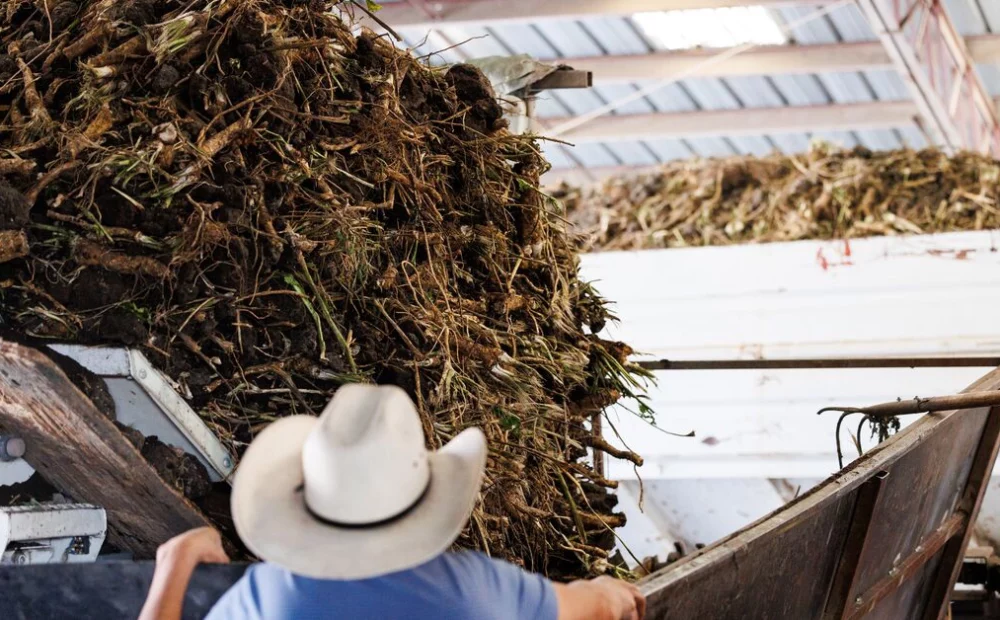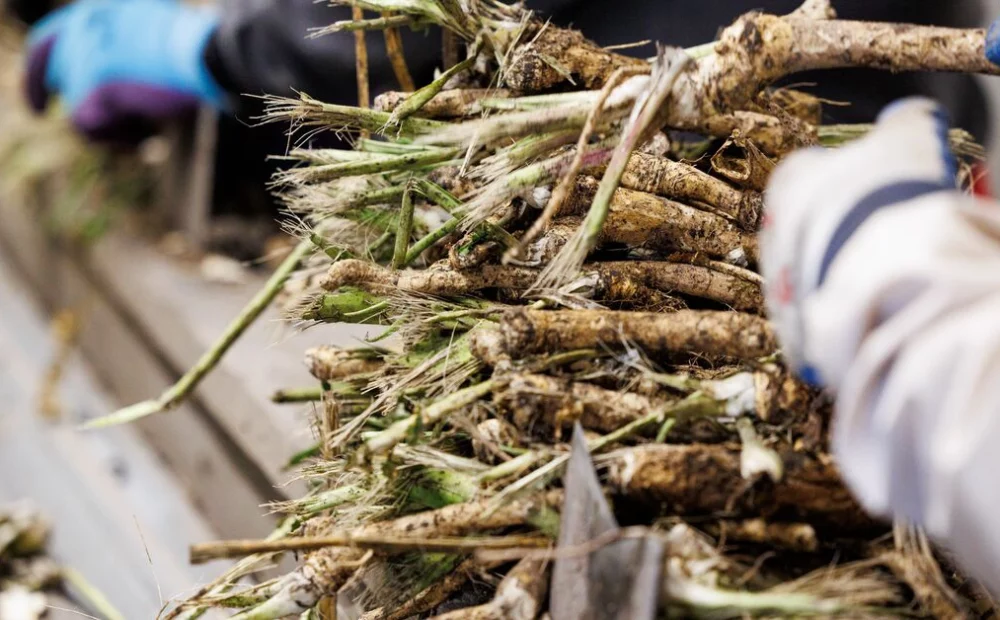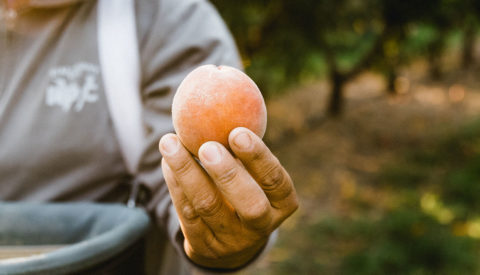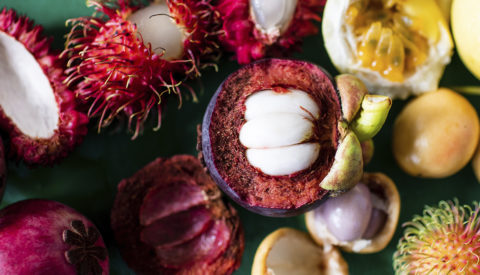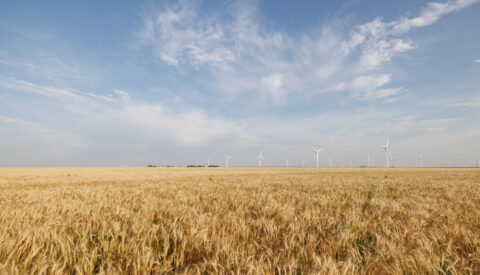When Ed Seus wrote his name on a slip of paper and dropped it into a pickle jar, he had no idea that his life would soon be changed forever. As luck would have it, the Coast Guard service member’s name was picked from the jar, and he was suddenly the owner of 72 acres of California farmland.
Ed packed up with his family and moved from Oregon to Tulelake, a town near the shores of a drying lake in the northeastern corner of California, to begin farming in earnest. Ed’s hard work and ingenuity built a successful farm that grew grains, bluegrass, clover and horseradish – a novel crop for this region.
Three generations later, Scott and Sara Seus are carrying on the family’s tradition of farming specialty produce in the Klamath River basin while substantially expanding the operation. Seus Family Farms now grows horseradish, dehydrator onions, mint tea leaf, grains and garlic.
“Our biggest drive is to do better every day,” said Scott.
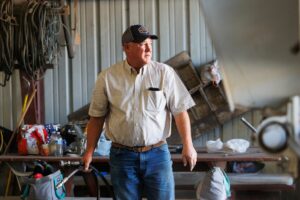
“What keeps us in [agriculture] is to see if we can do it, if we can raise things to a higher level. We are trying to grow a quality product with exceptional yields, in a lot of cases, and that is driven in large part by our desire to do reputable work and pass that along to the next generation.”
Seus Family Farms is now the largest U.S. producer of horseradish west of the Rocky Mountains. Scott said the farm’s lakebed soil is ideal for producing fiery, flavorful horseradish.
“When you taste horseradish, you can taste the soil that it was grown in,” he said. “Farming in an ancient lakebed with cold temperatures, our horseradish really stands apart from other areas of the country.”
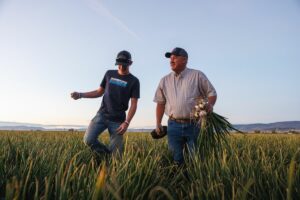
Healthy farming for the 5th generation
The Seus’ three children, Spencer, Emma and Charlotte, represent the family’s fifth generation on the farm. Sara said her dream is to see the couple and all three children working together on the operation, even if it’s a temporary step for some of her children.
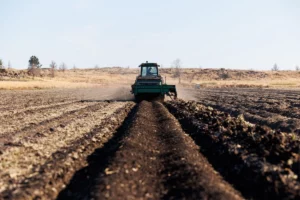
“I don’t know that all three of my children will be involved, but I think for sure one will, and I look forward to being able to cultivate and teach him about the inner workings of the company and give him the knowledge that he would need to be successful,” said Sara. “And I hope that he would then have the opportunity to share that knowledge with his children as well.”
In the past decade, Seus Family Farms has taken steps to increase sustainability, earning praise from groups that work to preserve soil health and biodiversity. Scott said each decision is rooted in keeping Seus Family Farms healthy and viable for future generations.
“We are the third farm in the United States to be given the seal of approval by the Rainforest Alliance,” said Scott. “We also have our organic standards on multiple crops and work to lessen the amount of tillage passes, plus we use soil sampling and sap testing to minimize the amount of pesticides, fertilizer and crop amendment needed.”
Seus Family Farms goes beyond sustainable and organic standards by reinvesting profits into building healthy soil and water infrastructure, two long-term investments that Scott said have set the farm apart from other operations.
“I’m proud of the fact that we can sustain ourselves through dry years, that companies come to us and contract because they know we can do it,” said Scott.
“We may not have the shiniest newest equipment out there and it’s because we have reinvested into our ground to make the most important asset that we have, which is our soil, sustainable.”
‘Remarkable’ stewardship in the Tule Lake Basin
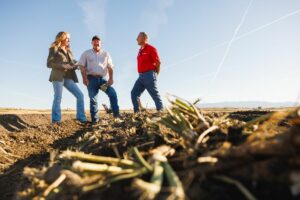
Joe Egan is vice president of lending at American AgCredit, a leading association in the Farm Credit System, where he works closely with farmers like Scott and Sara. Joe said he has been impressed with the Seus family’s commitment to sustainable farming and growing the operation for the long run.
“Seus Family Farm is unique for a number of reasons,” said Joe. “The crops they produce are unique. But more importantly, the family has sustainably farmed in the same area since the 1950s. Being able to do that here is remarkable.”
The Tule Lake Basin is home to healthy, productive farmland thanks to thousands of years of waterfowl migrations and volcanic eruptions, which slowly accumulated into soil hundreds of feet deep.
Scott said he is proud of the growing practices at Seus Family Farms and hopes others will come to appreciate the important role of sustainable agriculture in maintaining – and even improving – the land for many generations.
“When people visit the farm, they understand the importance of good, solid stewardship of the ground,” said Scott. “And that’s what we do here.”

